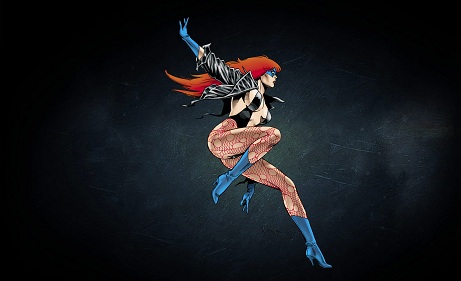If it wasn’t for the fact that the black and white kitten in this little video has four legs and can make jumps he can only dream of, I would’ve thought my Hector was moonlighting. Just look:

(Video via Michel.)
If it wasn’t for the fact that the black and white kitten in this little video has four legs and can make jumps he can only dream of, I would’ve thought my Hector was moonlighting. Just look:

(Video via Michel.)
The most adorable frog ever.
Cartoonist:
Ilustrator:
Architect:
Designer:
Allround renaissance man:
Blues singer?
The Atlantic discovers Black musicians can be geeky too:
But what such cutesy nicknames obscure is that R&B music—and black American culture more widely—has embraced fantasy, sci-fi, or other “nerdy” subcultural tropes more often than many people realize. From the space-travel fantasias of Sun Ra and George Clinton in the ’70s to the Wu-Tang Clan’s Shaolin kung-fu obsession in the ’90s to the present day—when 2012’s most widely acclaimed album, R&B singer Frank Ocean’s Channel Orange, includes a nine-minute odyssey imagining the ancient Egyptian empire reincarnated on the Las Vegas Strip— black musicians have drawn from the same wellsprings of imagination and popular culture as everyone else.
Well, yeah. Moreover, Black musicians have not just drawn on those wellsprings, they’ve replenished them as well. People like George Clinton or Sun Ra were not just influenced by fantasy or science fiction, they also composed their own epics. Clinton especially with his parliamentfunkadelicgroovethang was just as creative in developing their own cosmology as Jack Kirby was in developing his Fourth World. It’s just that these contributions often go unrecognised. Black geekdom, Black interest in science fiction and fantasy is still strange, still dangerous.

So this might sound familiar. A meek, shy student is bitten by an escaped lab animal and is given strange powers as a result; radiation is involved. Once these strange new powers have revealed themselves to her, she decides to become a superhero. Wait, “she“? Yes, because this is Bane Kerac’s Cat Claw, not Lee/Ditko’s Spider-Man. Not that the similarities in their origins are coincidence; Kerac was inspired by Spider-Man when he created Cat Claw for a Yugoslavian comics zine in the mid-eighties. Where they differ is that Carol Connor was much more likely than Peter Parker to lose her already skimpy costume.
Popular enough in her home country to get a television special dedicated to her and her creator in 1991, Cat Claw was also exported to various other European countries including Holland, as well as reprinted in a nine issue series by Aircel/Malibu comics in the US. To be honest, her adventures, or at least the ones I’ve read, are all pulpy nonsense, but Kerac has a sense of humour and that makes up for a lot. The mini movie from that tv special, excerpted below, meanwhile is very eighties, but does get across the spirit of the comics well.